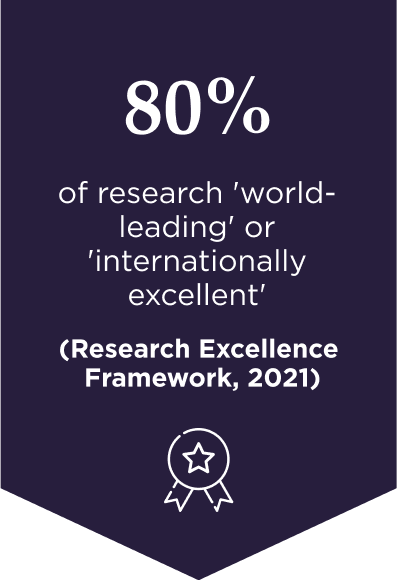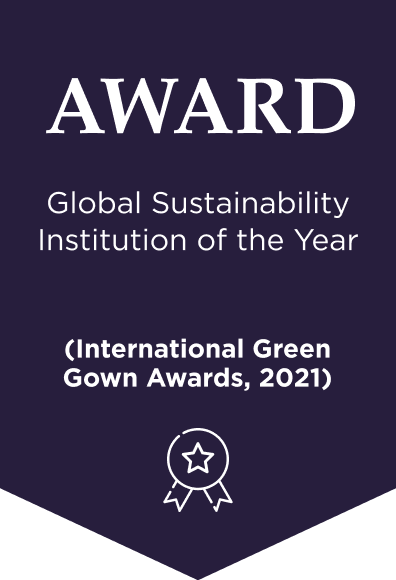Why strategic global marketing is key to unlocking international markets
Posted on: January 19, 2023
Innovative technology has opened up a world of possibilities for businesses interested in international trade. Where previously this might not have been a cost-effective option for many, our increasingly connected global community – and the rise of digital marketing in particular – have now presented alternative, more-affordable ways of reaching new customers.
How best should brands navigate the crowded, fast-paced and changeable realm of international marketing? What critical strategic decisions should be prioritised to grow into a global brand?
What is a global marketing strategy?
A global marketing strategy (GMS) is a coordinated strategy adopted by businesses to expand their operations and marketing efforts into different regions across the world. It is characterised by a singular, consolidated brand vision, and encompasses messaging and aesthetics, social media and marketing tactics, public relations and events.
There are four main international business strategies that companies choose from:
- International strategy – Businesses based in one country who promote their brand and ship internationally use this strategy.
- Transnational strategy – This strategy is adopted by businesses who are based in a single country but operate subsidiaries in other countries. Local and regional teams then coordinate marketing activities under a larger, corporate brand.
- Multi-domestic strategy – Smaller, country-specific brands are developed – and often feature different brand names. The brand, and very often the marketing strategies it employs, is tailored to local customs and cultures.
- Global strategy – An overarching brand with one marketing strategy that makes little-to-no adaptations for different markets.
Strategies may change based on what business leaders define as their ‘go-to-market’ strategy in individual local markets. GMS employs many of the same tactics and tools as traditional marketing plans, campaigns and strategies. The chosen GMS dictates the level of localisation or globalisation which dictates the tactics employed to market products and services.
Why is global marketing strategy important?
Local and national businesses who want to break into international markets do not become successful global players overnight. While an oversimplification of the complexity involved, launching in new markets – particularly foreign markets – requires patience, dedication, focus and a well-researched, strategic marketing plan that can scale to a global context. Despite many business leaders now possessing the means to expand in this manner, this does not mean that the marketing decisions regarding their marketing campaigns and agreed marketing mix are straightforward.
A business cannot assume that current marketing efforts and tactics used to engage local markets will be sufficient to succeed around the world. The most-successful brands of today utilise knowledge of brand strategy, market segmentation and the latest marketing concepts and tools to craft a winning GMS.
What are the benefits of marketing to global audiences?
Global marketing has the potential to open up a wealth of new, exciting opportunities. Get it right, and there are numerous, game-changing benefits for businesses:
- Access to a larger customer base and new target markets
- More-resilient business models, revenue streams, supply chains and infrastructure, capable of weathering unpredictable, unfavourable events
- Partnership opportunities and cultural exchange with business partners and networks in different countries
- Greater brand recognition, brand awareness and reputation, which helps to build trust, stability and customer loyalty
- Increased competitive advantage
- A switch to a longer-term perspective of the business
- Appropriate and strategic utilisation of surplus products and resources
- Technological advances
- Increased profit and a healthier bottom line.
A foray into global marketing can also be an incredibly exciting time for a business and its team members – from learning opportunities and skills development to new experiences and professional growth.
Global marketing strategies
We can all name the winners of the global marketing game – whichever international strategy they have chosen to adopt: McDonald’s and their product standardisation; Coca-Cola and their instantly recognisable branding; Starbucks and their value-based pricing; Nike and their social media campaigns and partnership choices; Airbnb and their clever content marketing. But it’s not just the huge, multinational household names who can craft the most-effective strategies – businesses of all sizes stand to gain from learning from their marketing management approaches.
The Four Ps of Marketing (Product, Pricing, Promotion, Place) apply to global marketing planning, as highlighted by the Chartered Institute of Marketing, as well as additional marketing fundamentals that businesses should consider:
- International product lifecycle – including considerations related to launching products in foreign markets
- International product strategies
- Assessment and adaptation of products and services for foreign markets
- International messaging and international value propositions
- Frameworks for international pricing and international digital marketing.
The degree to which a brand will tailor their branding and marketing depends on their chosen strategy. There are several key elements that marketers must consider, and then consider to what degree they want to adapt:
Product localisation. Has the product range been adapted to suit local tastes, needs and customs? What pricing is most appropriate? Whether launching new products or adapting existing bestsellers, the right product offering is paramount to success. Tailoring products to regional or local cultures and customs, from product packaging and labelling to formulation and even suggested use and application, may be required.
Market localisation. Are there specific marketing activities or promotions that will entice a certain target audience? What are local competitors doing and how can marketing stay competitive and relevant? Is the branding pitched correctly? The expectations and sensitivities of local audiences are often central to marketing decisions. Marketing professionals may wish to tailor brand messaging and marketing activities to suit local audiences, including designing specific promotions, adapting phrasing, using translators and sensitivity readers and conducting market research into the best-performing platforms and tactics.
Infrastructure. Would a local-language website prove beneficial to marketing efforts? Strategic global expansion requires strong digital infrastructure, alongside the physical aspects such as logistics, distribution and supply chains. Sophisticated global marketing strategies will consider trademark registration, native-language websites, top-level domains in local markets, and search terms and platforms used by target audiences in their approach.
Marketing tools and tactics. What social media platforms are audiences using in different regions? What search terms are they using to find products and services? Marketers must possess expertise in Search Engine Optimisation (SEO), content marketing, and a host of other inbound and outbound marketing techniques to design, implement and monitor their marketing performance.
While these fundamental elements may require multiple marketing iterations across different regions – or not – they serve to increase customer engagement and awareness, boost global expansion and, ultimately, build a more-resilient business model.
Use strategic marketing to underpin your global expansion efforts
Individuals with the skills and expertise to design and implement global and international marketing mixes are highly sought by employers.
If you’re passionate about developing the marketing know-how to tap into global markets and audiences, Keele University’s online MBA Finance and MBA Entrepreneurship programmes will set you in good stead. Designed to develop business leaders for the modern, challenging world of global trade, your studies will help to boost your employability and prime you to succeed in a broad range of business disciplines. Example topics include strategic marketing, organisational strategy, people management, leadership, business innovation, finance, and more.



